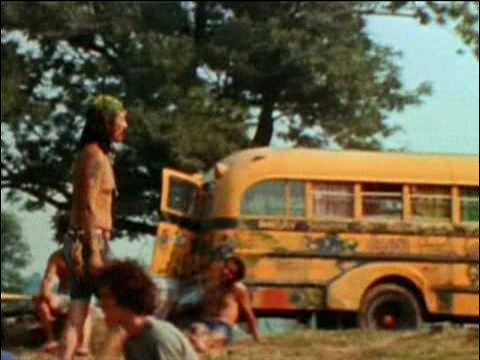@Michele1 I really loved the La Llorona song. I grew up with a lot of Mexican-American kids in Los Angeles and one day a girl told me the story of La Llorona - that she killed her children and that she is a wandering ghost who kills children. The scariest part was that she said that people around our neighborhood had seen her or heard her wailing and that if you heard her wailing in the far distance it actually meant she was very close by. For weeks after that I was terrified if I heard anything that vaguely sounded like wailing in the distance! Here’s Lila Down’s version:
Las Cafeteras version (a Chicano band from Los Angeles):
Las Cafeteras doing there version of “This Land is My Land” by Woody Guthrie. Takes on new meaning when performed by Mexican-Americans!
This is filmed in a park that is within walking distance of my family home in Los Angeles.
Wow! I did not even know this version of La Llorona. There are so many! Thank you for sharing. And yes to Las Cafeteras and “new meaning”…hm. So true.
Latin culture offer wonderful heart-music.
More Las Cafeteras. Oaxaca Love Song #2. The words are all about Mexican food. Notice that the announcer is introducing them in the Zapotec native language from Oaxaca.
Funny song. Yes, it is all about food ![]()
Btw - I did not know about the story of La llorona, so thank’s for sharing a bit of her and your story.
I just love the song and could only get parts of the lyrics when listening. But now it makes sense: I read that she drowned her two children, deeply repented afterwards and is since searching in every river and town, so, if you lived near a river and surrounded by Mexicans - of course, she would appear wailing! I did not read about the further killing of children. She would not be crying then…
Brewer and Shipley had a top 40 hit in the 60’s with this song “Witchi-tai-to.”
The song came from Native American sax player and songwriter Jim Pepper, based on a traditional peyote song:
A cool video remix.
“You Are the Eyes Of The World”**
(I posted an article about a book by this title based on Vajryayana teachings in the “Sacred Teachings” topic thread. Haven’t read the book yet but looks interesting, and the review connects this song to these teachings.)
Right outside this lazy summer home
You ain’t got time to call your soul a critic no
Right outside the lazy gate of winter’s summer home
Wondering where the nuthatch winters
Wings a mile long just carried the bird away
Wake up to find out that you are the eyes of the world
The heart has its beaches, its homeland and thoughts of its own
Wake now, discover that you are the song that the morning brings
But the heart has its seasons, its evenings and songs of its own
There comes a redeemer
And he slowly too fades away
There follows a wagon behind him
That’s loaded with clay
And the seeds that were silent
All burst into bloom and decay
And night comes so quiet, it’s close on the heels of the day
Wake up to find out that you are the eyes of the world
The heart has its beaches, its homeland and thoughts of its own
Wake now, discover that you are the song that the morning brings
But the heart has its seasons, its evenings and songs of its own
Sometimes we live no particular way but our own
And sometimes we visit your country and live in your home
Sometimes we ride on your horses, sometimes we walk alone
Sometimes the songs that we hear are just songs of our own
Wake up to find out that you are the eyes of the world
The heart has its beaches, its homeland and thoughts of its own
Wake now, discover that you are the song that the morning brings
But the heart has its seasons, its evenings and songs of its own
All of the skeleton imagery - definitely a meditation on impermanence.
There is a whole bunch of this Grateful Dead AI animation on youtube. Pretty wild stuff!






























![ZZ Top - Legs (Official Music Video) [HD Remaster]](https://img.youtube.com/vi/eUDcTLaWJuo/maxresdefault.jpg)


![Led Zeppelin - Going To California (Live at Earls Court 1975) [Official Video]](https://img.youtube.com/vi/nhVfuacsLDw/maxresdefault.jpg)




![The Corrs - Breathless [Official Video]](https://i.ytimg.com/vi/vzerbXFwGCE/hqdefault.jpg)
